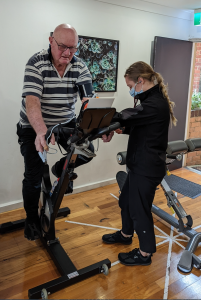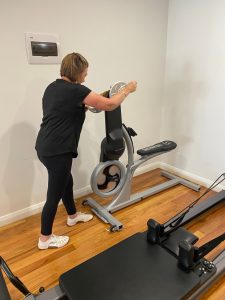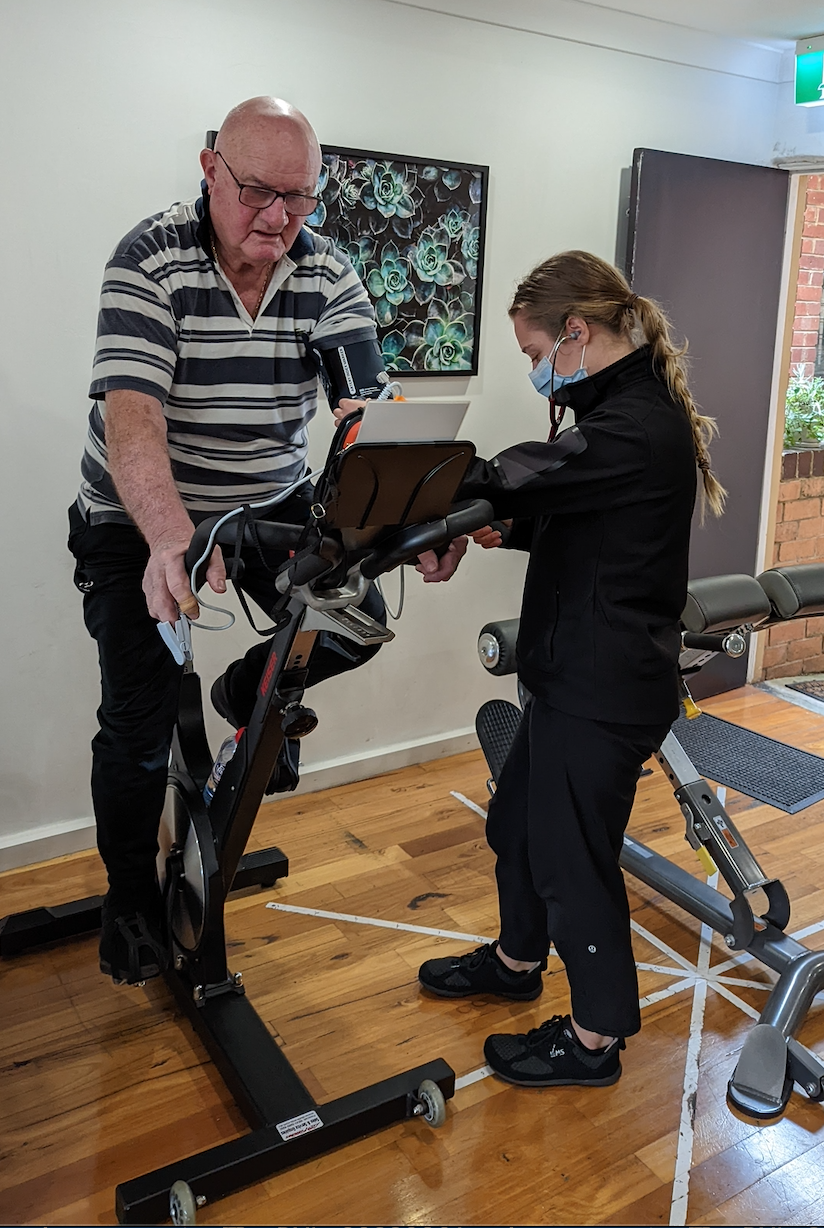What is Cardio?
Physical inactivity is a primary cause of most chronic diseases, so understanding your fitness level can assist you greatly in not only knowing how you’re tracking with your fitness but also what you can do about it to improve for the future.
You would have heard the term ‘cardio’. This is short for cardiorespiratory (heart and lungs) exercise. This is the type of exercise that increases your heart rate and breathing. Cardio can be many things such as walking, running, cycling, swimming or using various equipment at the gym or in your home. It is usually movements that are repetitive and can be done for a period of time at various intensities.
Why is my fitness level (VO2) important?
Your fitness level or VO2max dictates many abilities such as your resilience against disease, stress, as well as ability to recover after illness.
It also dictates how well you can participate in activities of daily living such as cleaning your home, going shopping, gardening, cooking and dressing yourself. Or more physically demanding tasks or sports (eg. hiking/ running around with grandkids) and improved sports performance.

How can we measure your fitness level?
We measure your fitness by recording data from an exercise test that increases your heart rate as the intensity of the test progresses. At the end of the test we calculate your fitness score which is called your VO2 peak (peak volume of oxygen uptake)
Your VO2peak is the highest amount of oxygen per minute your cardiorespiratory system (heart = pump, lungs= oxygen) can pump and carry oxygen from our lungs to our muscles to provide energy and is the main measure of aerobic fitness. The higher the score the longer you are able to exercise.
It is also a very important measure of overall health, especially heart and lung health.
A low VO2 peak correlates to a higher risk of cardiovascular disease and all other chronic diseases as well as early death from all causes (eg. heart or cancers etc). Not only are you more likely to have disease as life progresses, recovery from illness is longer and ability to continue with things you want to do can get much more difficult as you age.
So, if you have a health issue, assessing what your actual VO2 peak (fitness level) is in a safe manner and then improving that result over time can have a large positive effect on your health and can be a powerful treatment and prevention for further health issues down the track.
Another interesting thought is to think about the things you would like to be able to do in your last decadeof life. These activities would need you to be at a certain fitness level. If your fitness level at the age you are now is low, we know that it is only going to decline with time and lack of activity. This is a great incentive to improve that level so th at you can continue doing the activities you plan for later.
at you can continue doing the activities you plan for later.
For athletes, knowing your Vo2 max and peak workload can allow for a much more specific training protocol to assist how you structure your fitness training for your chosen sport.
Explanation of the “Cardio Fitness Test” at PXP
If you would like to assess your fitness level PXP have the “Cardio Fitness Test” appointment that you can book, where one of our Exercise Physiologist’s will assess you either on the Bike or completing a Step Test.
The test starts with taking your blood pressure at rest, as well as a resting ECG (Electrocardiogram) if necessary, we will then provide you with a heart rate monitor and instructions on how the test will be run.
Our Exercise Physiologist’s will then commence the test whether it be on the bike or the step test. The choice of tests will be made based on the best option for you and your abilities.
Throughout the test your practitioner will record all values and ask you how hard you feel you are working to gauge your ability to continue or not. The test will run anywhere between 4 -12 min on average.
At the peak of the exercise test we will record your heart rate, blood pressure, the effort level as well as another ECG (if required) to see how well your heart and lungs function at your peak effort. This will be continued to be monitored as you recover from the test.
At the end of the test we will have enough data to give you a score of your level of fitness (VO2peak and metabolic rate) that is comparable to people of the same age group and weight.
From this information we can then derive a specific program to improve your fitness level. We can then give you this program to follow either before/after one of your normal appointments at PXP or to do at home or gym.
The information found in these assessments can be sent to your GP or cardiologist for review if necessary.
The ‘Cardio Fitness Test’ is appropriate for people with a low level of fitness and with chronic health concerns as well as elite athletes who are looking to further improve their performance. Our Exercise Physiologist’s are qualified to make sure the test is safe for you and specific to your abilities.
If you would like to book a “Cardio Fitness Test” please click here http://pxphys.com.au to book online, email admin@pxphys.com.au or call us on 03 9459 5854.
————–
Written by:
Beth Chiuchiarelli – AES, AEP, ESSAM
Accredited Exercise Physiologist & Director
If you are interested in reading more see below for related articles
Unlocking Longevity: Physical determinants of Healthspan and Lifespan
HIIT for Health – Can High Intensity Interval Training Help with your Chronic Health Condition?
- https://www.ncbi.nlm.nih.gov/pmc/articles/PMC4241367/
- https://pubmed.ncbi.nlm.nih.gov/21228724/
- https://pubmed.ncbi.nlm.nih.gov/30496487

